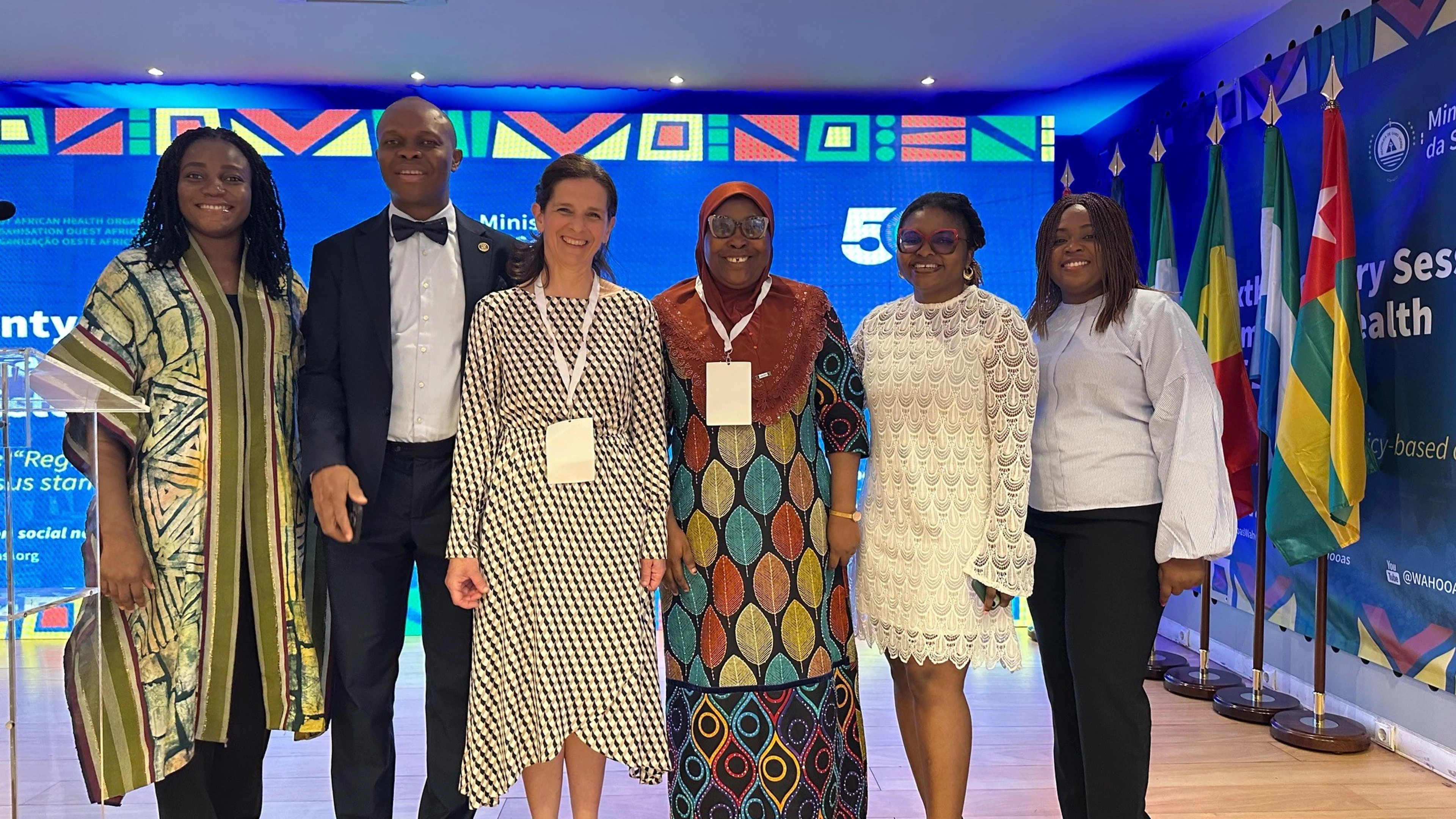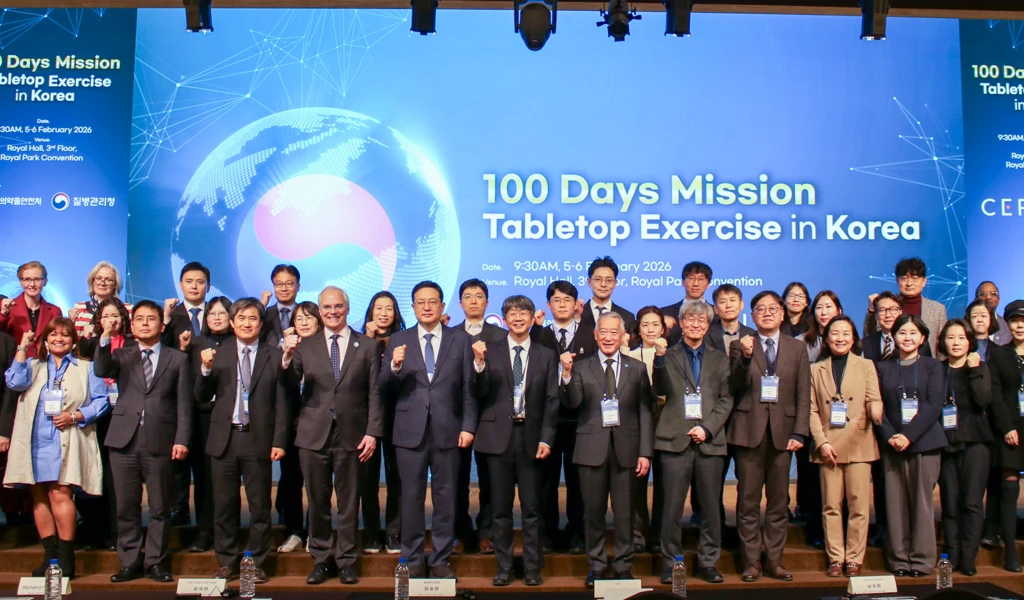Three leading West African health partners— Corona Management Systems, Nigeria Health Watch, and Bloom Public Health —have officially joined the Lassa fever Coalition, an instrumental WAHO-led initiative supported by CEPI, to advance the fight against the deadly haemmorhagic Lassa fever and accelerate the development and future equitable introduction of Lassa fever vaccines across the affected region.
The organisations will work together as new partners to the Coalition’s Secretariat supporting WAHO to successfully set up and run the locally-led partnership. Members of the regional Coalition include the Ministers of Health of Benin, Guinea, Liberia, Nigeria, and Sierra Leone - the West African countries most affected by the disease.
The news was announced at the 26 th Ordinary Session of the Assembly of Health Ministers of ECOWAS held in Praia.
“The expansion of the Lassa Fever Coalition is not just a strategic step—it is a powerful affirmation of what is possible when African nations rise together in common cause,” said Dr. Muhammad Ali Pate, Nigeria’s Coordinating Minister of Health and Social Welfare, and Chair of the ECOWAS Assembly of Health Ministers.
“I see firsthand the urgency of this moment. Lassa fever has haunted our region for decades—but it has also taught us that no country can stand alone. Our most effective defence lies in collective action—rooted in local leadership, guided by science and powered by trust. Under the Renewed Hope Agenda of President Bola Ahmed Tinubu, and through Nigeria’s National Health Sector Renewal Investment Initiative (NHSRII), we are not merely responding to outbreaks—we are deliberately building resilient systems to anticipate and prevent them. The onboarding of new partners to the Coalition reflects a deeper shift: toward a region that takes ownership of its future, values every life, and refuses to let geography determine access to life-saving tools. This is more than a Coalition—it is a blueprint for future epidemic preparedness and a model of how solidarity can deliver health security across West Africa and beyond.”
Dr. Melchior Athanase Joël C. Aissi, Director General of WAHO, said, "In today’s interconnected world, expanding globalisation and increasing population movements across borders significantly heighten the spread of Lassa fever. No single country can address these challenges alone. “We are delighted to welcome our new partners to this transnational coalition. Their expertise will strengthen our collective efforts to accelerate outbreak response, increase access to critical resources, and enhance health security across the region, under WAHO’s leadership.”
Coalition Secretariat spokesperson and Managing Director of Corona Management Systems, Dr Chijioke Kaduru, said: “We are pleased to join this pioneering coalition, under WAHO’s leadership to drive a unified regional response to Lassa fever. Our support to WAHO reflects a shared commitment to strengthening locally led solutions that connect science, policy, and communities. Together, we can lay the foundation for equitable access to safe and effective Lassa fever vaccines. Focusing on coordination, capacity-building, and regional preparedness to ensure long-term health security.”
Fifty years after its initial discovery, hundreds of thousands of people continue to be affected by Lassa fever annually, with the disease burden likely to be vastly underestimated due to gaps in reliable diagnosis and misdiagnosis for other illnesses, like Malaria.
One in five infected typically experience severe symptoms including headache, fever, chest and back pain, and bleeding from body parts which can be fatal. In those that recover, hearing loss is commonly reported post-infection. The potential impact of the disease is set to worsen, with modelling research predicting up to 600 million people could be at risk of Lassa fever infection by 2050 as a result of climate change and population growth.
“Given its risks to public health and recognition on the WHO’s list of priority diseases in need of urgent R&D, Lassa fever is one of CEPI’s vaccine targets”, explains Dr Richard Hatchett, CEO of the Coalition for Epidemic Preparedness Innovations (CEPI). “With extensive experience in Lassa fever strategy development and supporting regional immunisation programmes, the new Coalition Secretariat partners can support WAHO-led efforts to make CEPI’s investments in Lassa fever vaccines a reality. Their work will help to build an environment to engage relevant audiences and plan the future rollout of a safe and effective Lassa fever vaccine, while also devising a way forward for fighting other regional pathogens and strengthening health security in West Africa”.
The new secretariat representatives will be primarily based in Nigeria, with country project managers and small teams represented in Liberia, Sierra Leone, Guinea and the Benin Republic.
The experts will support the Coalition by developing plans to advance vaccine R&D projects in the region, increasing country and regional engagement with vaccine developers, research funders, and other stakeholders, and providing support to implement a future Lassa fever vaccine end-to-end access roadmap. The Secretariat will also strengthen scientific capacities in affected countries to run clinical trials assessing Lassa fever vaccine candidates and rollout new vaccines.
Altogether, their regional planning and collaborations can help inform the design of upcoming Lassa fever clinical trials as well as vaccination strategies, including plans that assess regional demand for the vaccine and guidance on the populations that should be first prioritised to receive a future vaccine.
Today’s announcement follows the inaugural meeting of the Lassa fever Coalition’s Governing Entity in Abuja, Nigeria, in January 2025. The Coalition’s Governing Entity will provide country and regional leadership to the Coalition and ensure effective governance and delivery of its programmes.
Building on this momentum, WAHO will convene the 2nd Lassa Fever International Conference (LIC) from 22 – 26 September 2025, in Abidjan, Côte d'Ivoire. Under the theme “Beyond Borders: Strengthening Regional Cooperation to Combat Lassa Fever and Emerging Infectious Diseases,” the landmark event will bring together scientists, public health experts, vaccine developers, policymakers, civil society and regional stakeholders to share insights, review progress and forge new partnerships aimed at accelerating vaccine development and strengthening Lassa fever control efforts. As Lassa fever and other infectious disease threats continue to rise in scale and complexity, the second Lassa International Conference represents a pivotal opportunity to drive a resilient and coordinated regional response.
WAHO warmly invites partners, researchers, journalists and stakeholders committee to regional health security and epidemic preparedness to actively participate in and contribute to this important event. Details on abstract submissions and participation guidelines can be found at www.lassafeverinternationalconference.org/abstract/.
ENDS
Notes to Editors
- Corona Management Systems, Nigeria Health Watch and Bloom Public Health will support the Lassa fever Coalition Secretariat for an initial two years.
Members of the Lassa fever Governing Entity include Ministers of Health across West Africa as well as senior representatives from CEPI, WAHO, and the World Health Organization Headquarters and Regional Office for Africa (WHO - AFRO).
About the partners supporting the Coalition Secretariat
- Corona Management Systems (CMS) is an international social enterprise that specializes in providing technical and management support to programs and implementing innovative projects in health and social development. The organisation's mission is to champion the delivery of country-owned high-impact health and social development services, through strengthening data systems and institutionalising evidence-informed decision-making. This mission is achieved by leveraging community assets, deploying information and communications technology (ICT), providing technical support for policy development and resource mobilisation.
- Nigeria Health Watch: is a non-profit organisation focused on health advocacy and communication to improve healthcare access and quality in Nigeria. By leveraging health expertise and strategic communication, it promotes accountability in healthcare delivery and engages stakeholders to foster health awareness. Its mission centres on empowering Nigerians with knowledge to make informed health decisions, while also driving transparency and policy reform at federal and state levels.
Bloom Public Health: is a health consultancy dedicated to advancing public health systems across Africa, delivering innovative and impactful solutions tailored to the continent's unique needs. The organisation is deeply committed to strengthening health infrastructure, emphasising areas like strengthened research and development, local manufacturing, pharmaceutical quality assurance, supply chain management, and regulatory capacity building to ensure that safe, effective medications and vaccines are accessible to communities.
About West African Health Organisation (WAHO)
The West African Health Organisation (WAHO) is the Specialised Health Institution of ECOWAS, established in 1987 to coordinate regional health initiatives across West Africa. Headquartered in Bobo-Dioulasso, Burkina Faso, WAHO works to harmonise health policies, pool resources, and foster collaboration among Member States. Its core mandate is to improve health standards and strengthen health systems across the sub-region. Guided by its vision, WAHO strives to be a proactive driver of regional health integration, delivering high-impact and cost-effective health interventions for West African communities.
About CEPI
CEPI is an innovative partnership between public, private, philanthropic, and civil organisations. Its mission is to accelerate the development of vaccines and other biologic countermeasures against epidemic and pandemic threats so they can be accessible to all people in need. CEPI has supported the development of more than 50 vaccine candidates or platform technologies against multiple known high-risk pathogens or a future Disease X. Central to CEPI’s pandemic-beating five-year plan for 2022-2026 is the ‘100 Days Mission’ to compress the time taken to develop safe, effective, globally accessible vaccines against new threats to just 100 days.



.webp)
